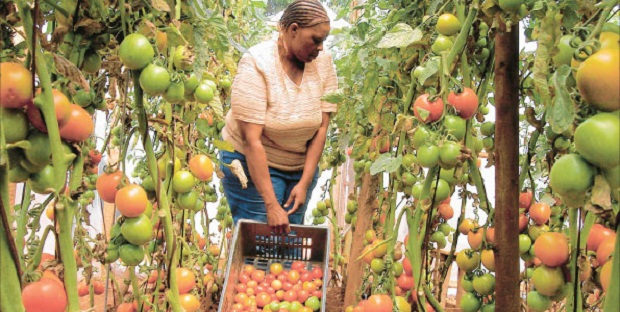Catherine Ndarwa can comfortably take her children to school and buy food for the family without relying on finances from her husband, an independence borne out of a Constituency Development Fund (CDF)-funded greenhouse project.
She is a member of one of 10 women groups in Gatuanyaga ward, Thika East District, that have over the past three months each received a greenhouse worth Sh500,000 in which they have planted tomatoes. The project was initiated by the National Irrigation Board (NIB) with funding from the constituency fund.
“Most of us were doubtful when it was initiated, but time has proved us wrong. I can now pay my bills without relying on my husband,” said Ms Ndarwa. Each group consists of 21 members. Cynicism at the start of the project saw 50 out of the 210 members leave, raising fears that the plan would fail.
The women also received tomato seedlings and fertiliser, alongside the greenhouse kits.
Tomatoes mature after about 90 days, meaning that the women are currently picking their maiden harvest.
And business is not bad.
Ms Ndarwa said they were selling a crate of tomatoes for between Sh4,500 and Sh5,000, therefore earning each group approximately Sh200,000 in revenues. Alice Ng’ang’a, the Thika Town MP, said the project aims at making women self-reliant and alleviating poverty in the villages.
“This women-empowering project in the villages has started bearing fruits as our women are now making money daily from the sale of the tomatoes to local markets,” said Ms Ng’ang’a.
Women farmers make up at least 43 per cent of the country’s agricultural labour force, yet the yield gap between them and their male counterparts is as much as 30 per cent, official statistics show. This gap often comes about from unequal access to finance, land or technology.
Having witnessed the benefits derived from farming, these groups are now encouraging youths and other women across the county to adopt new farming technology using greenhouses to enhance their livelihoods.









